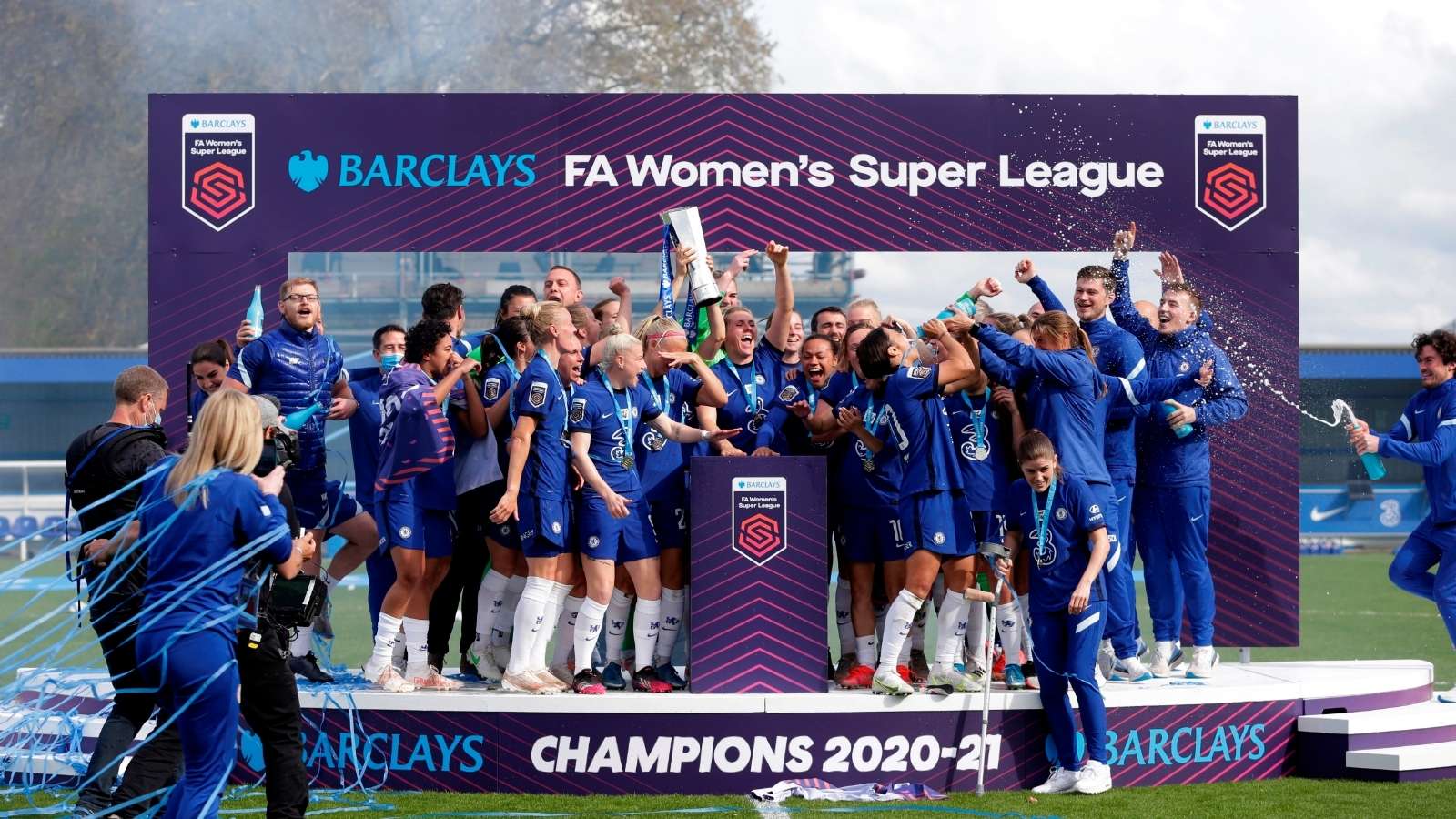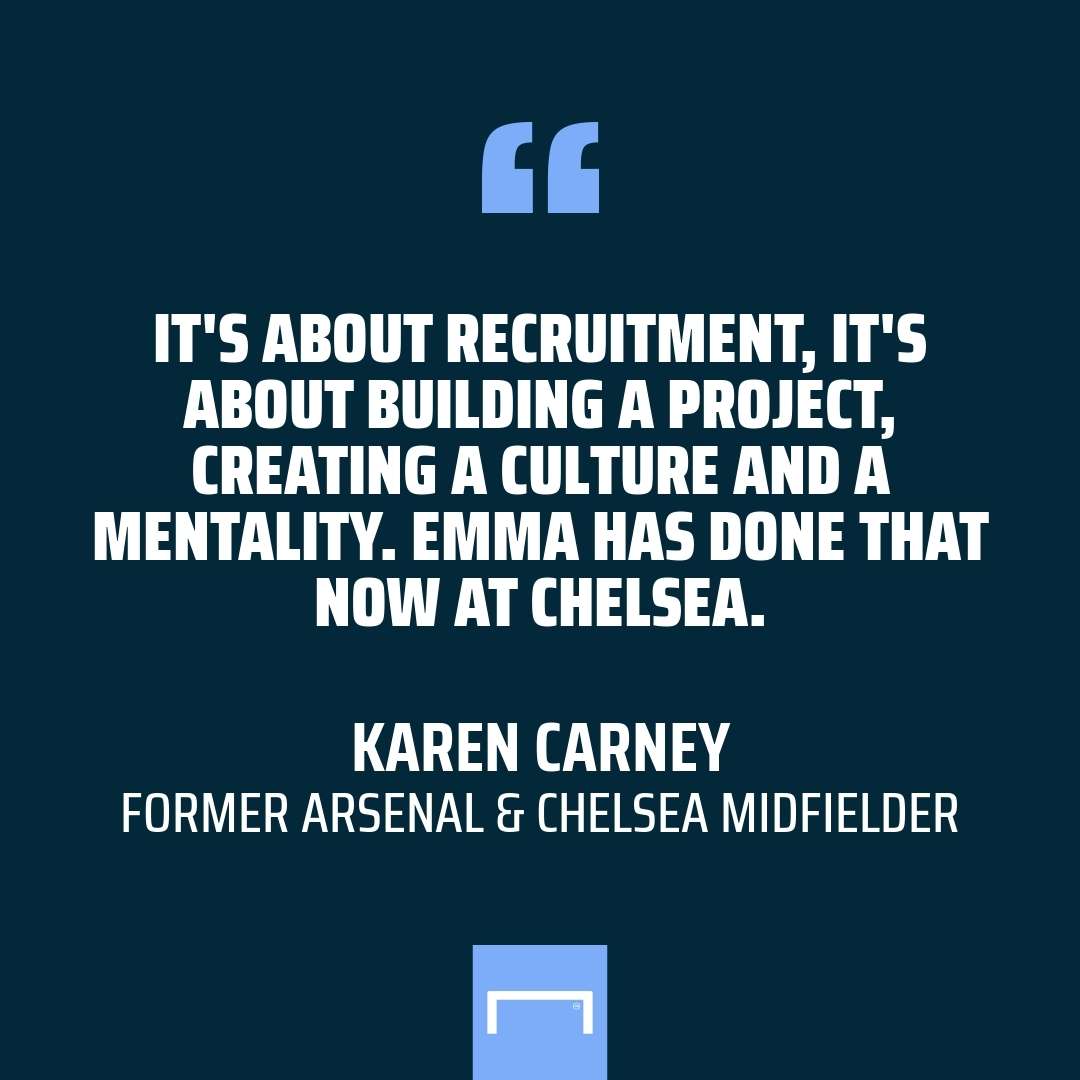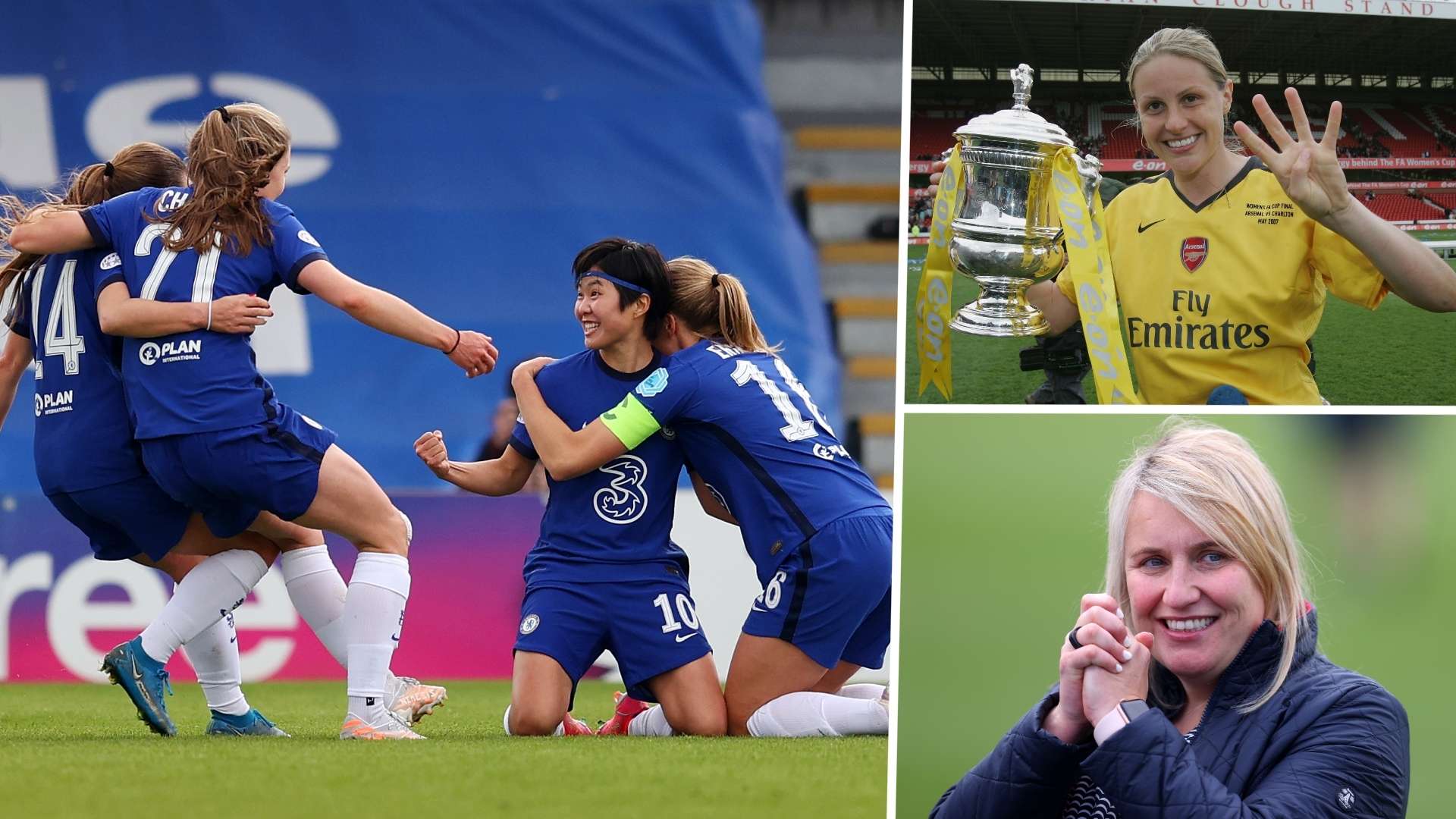The quadruple. In English football, it’s almost a myth.
It’s talked about year after year, with questions about the rare achievement usually aimed at the head coach of Manchester City’s men’s team, Pep Guardiola, or, more recently, Emma Hayes, the manager of Chelsea’s women’s team.
City’s chances this season were scuppered by Thomas Tuchel’s Chelsea beating them in the FA Cup, though they could still secure an historic treble.
Hayes’ side, meanwhile, are in the UEFA Women’s Champions League final on Sunday, having wrapped up the Women’s Super League title last weekend and claimed the Continental Cup in March. They are in the fifth round of the Women’s FA Cup, which will be carried over into next season.
As much as Hayes likes to dismiss the talk of winning the lot – understandably so, given some questions around it started long before Chelsea had even put one trophy in the cabinet this season – she is in a unique position.
Not only does she find her superbly assembled team perfectly placed to pull it off, with two of four trophies already secured, she was also involved on the one occasion it was done before.
It’s 14 years since Arsenal’s women’s team became the first and only English side to win the quadruple. It was Hayes’ first season as the assistant to Vic Akers, the man she regards as the greatest coach in the history of the women’s game.
“I remember just a young, dynamic, energised coach that brought in a lot of enthusiasm,” Karen Carney, who had joined the Gunners that same season, tells Goal.
Carney would go on to work under Hayes at Chelsea, too, in a fantastic career laden with 11 trophies.
“It was quite a match made in heaven with Vic, who's very old school and, like all the best coaches, made things simple," Carney explains, "and then [Hayes] would bring in that flamboyance, creativity.”
Arsenal had been the dominant force in England for many years and would be for many more, but winning the quadruple meant causing a big upset.
After all, Umea, their opponents in the UEFA Women’s Cup final, as the UWCL was known then, were what Carney refers to as “the Galacticos of women’s football”.
“If you want to compare it, actually, Arsenal’s achievement was unreal,” Hayes said this week. “To think Arsenal won that against a full-time team that was training with top players.
"Arsenal, at the time, were training for three [or] four nights a week. You couldn't compare it in many ways. That's why I think that story is so successful.”
There are similarities between Arsenal then and Chelsea now, though. Indeed, the impact Hayes’ time with Akers had on her is very evident today.
 Getty
Getty
“Vic taught me so much about what it means to play for a football club,” Carney remembers, something that can certainly be likened to the passion that Hayes has for Chelsea.
That love of the club has a direct impact on her players, who all understand what it means to pull on the shirt. Talk about the culture, the respect and the attitude – it's all present at Chelsea, just as it was at Arsenal.
“The one thing that Arsenal did was win and they did that by making sure that you stay together and always respect the badge,” Carney adds.
Hayes even noted herself this week that Chelsea's mentality is the same, while the almost faultless recruitment is similar too, both in the sheer quality of it and the long-term approach.
“Vic was putting pieces of the puzzle together for quite a long period of time,” Carney explains. “He came to my house the year before and said, 'I want to sign you, but it's a bit too early. Come next season, you will be an Arsenal player.'"
The England midfielder, then just 18 years old, would be the only player in Arsenal’s starting line-up in the 2007 final signed that season.
At Chelsea, Pernille Harder and Melanie Leupolz are the only regular starters that have been at the club for less than 12 months.
"The principles are exactly the same," Carney adds. "It's about recruitment, it's about building a project, creating a culture and a mentality. Emma has done that now at Chelsea."
That approach is something that has helped their opponents on Sunday too, with the core of Barcelona’s team having been together for five or six years now.
 Goal
Goal
However, the one big difference is strength in depth.
The investment the Blues have made in recent years has helped Hayes build one of the strongest squads on the planet, which played a pivotal role in them winning the WSL this season.
Of course, credit must also go to the manager and the way she has hand-picked each individual based not only on their abilities, but their personality.
“Arsenal played that [UEFA Women's Cup] final without Kelly Smith, and still won. I'm not saying losing a Kelly Smith-type equivalent would be catastrophic for us, of course it would be,” Hayes said this week, with Smith regarded as one of England’s greatest ever footballers, if not the greatest.
“But I think we've got more depth to fill in around it. That's the difference.”
It was some feat for Arsenal to write themselves into history all those years ago with an achievement that has yet to be matched, particularly when you factor in their underdog status for the European title.
For Hayes to translate huge elements of their success into the building of this Chelsea team was a no-brainer. After learning up close what it takes to be a relentless winning machine, she’s created another in the south of London.
The question is now around whether she can help another club secure another quartet of trophies. But the truth is, that won’t be on her mind on Sunday.
The Champions League is the elusive title that she and Chelsea crave more than anything. If they can put that one in the cabinet, then, just maybe, she’ll talk about the quadruple.




